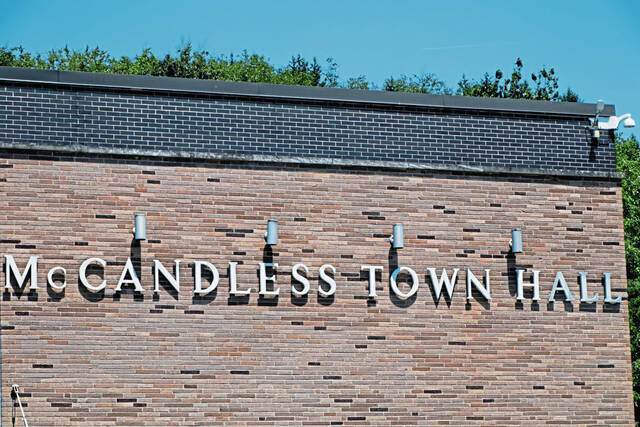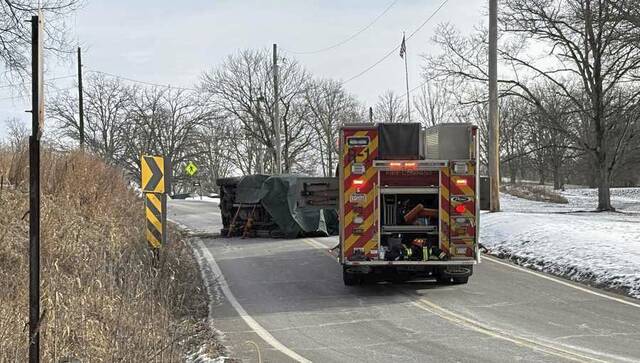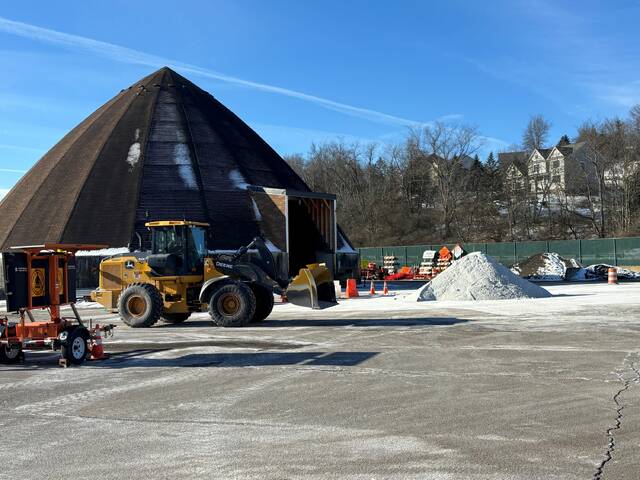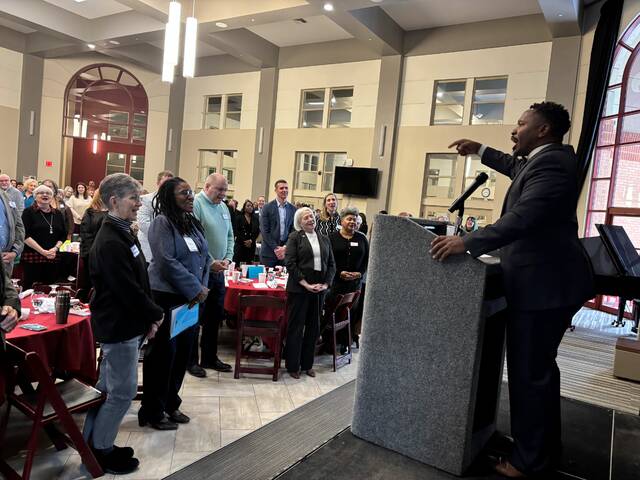Franklin Park officials have begun the first of many steps that could lead to a stormwater management fee being instituted in the borough.
Stormwater management is important to prevent flooding during heavy rains and the discharge of untreated, polluted water into streams and waterways. The borough also is dealing with aging infrastructure that will need serious attention in the near future, according to Franklin Park Borough Manager Rege Ebner Jr.
Under state law, boroughs cannot simply implement a stormwater fee but must create an separate body, called an authority, that would so.
Franklin Park Borough Council and Mayor Dennis O’Keefe in March authorized the borough’s stormwater engineer, Civil and Environmental Consultants Inc., to conduct an in-depth study of properties in the borough to determine their size and how much impervious surface, such as paved driveways and rooftop area, they contain. The study is under way.
Borough Solicitor Robert Max Junker of Babst Calland also was authorized to gather information about creating a stormwater authority and has begun conducting research.
If an authority is created, the council and mayor would want to keep administrative costs as low as possible so any funds collected go directly to stormwater maintenance and improvements, Ebner said.
Federal and state regulations require municipalities to implement stormwater controls. Stormwater runoff, which often is polluted, can be collected and transported through Municipal Separate Storm Sewer Systems, or MS4s. But in heavy rains, it can be discharged, untreated, into local water bodies, according to US Environmental Protection Agency.
A stormwater fee could help pay for stormwater improvements required but not paid for by the state or federal government.
“The Borough is facing a number of financial challenges regarding stream/stormwater issues through unfunded mandates, seemingly more severe rain events and aging stormwater infrastructure,” stated Franklin Park Mayor Dennis O’Keefe. “We are working to determine the best way to pay for these projects while still maintaining and in some cases increasing our current levels of service, including continued acquisition of green space and upgrades to our park system.
“A stormwater fee would require owners of the properties with the greatest amount of impervious surface to contribute the greatest amount to maintenance and improvements of our water course and stormwater systems,” he said.
Municipalities across the state are required to obtain a permit for stormwater discharges from their storm sewer systems under the National Pollutant Discharge Elimination System, according to the state Department of Environmental Protection.
“We are also now dealing with much of our older stormwater infrastructure (metal pipe) nearing the end of its life, and we are also utilizing engineers more frequently to help us analyze what appear to be more frequent flooding issues that originate from or are amplified through borough-owned property or roads,” Ebner said.
The traditional method of simply increasing the pipe capacity to get the stormwater to the nearest watercourse is no longer applicable as this approach simply results in flooding further downstream, he said.
The installation of stormwater detention facilities, while required in newer developments, was not required when neighborhoods were constructed prior to the 1990s, he said.
“Finding locations for detention facilities in older neighborhoods is extremely challenging. Our engineer has estimated the cost to make these repairs and upgrades, as well as maintaining all of the pipe, catch basins and detention facilities currently in the borough, to be approximately $900,000 to $1.5 million annually based on comparable municipalities,” he said.
Discussion about a possible stormwater fee initially began last year, according to council records. At that time, Ebner provided a list of stormwater project costs, stormwater complaints and budgeted funds for stormwater management. He noted more than 1,700 catch basins will need repair in the coming years and that the $300,000 budgeted for stormwater work this year will not be sufficient for these repairs and projects. He estimated at least $500,000 would be necessary.
Council members discussed either a tax increase or a stormwater fee would be necessary, and members said the latter would be more fair as property of nonprofits may be sitting on lots that hold a lot of impervious surface and thus contribute to the stormwater runoff. These nonprofits, including churches, also would have to pay a fee, based on the amount of impervious surface.
Credits could be offered to reduce the fee for green infrastructure.
Green infrastructure filters and absorbs stormwater where it falls, according to the U.S. Environmental Protection Agency. Examples could include open park space outside a city center, planting rain gardens or constructing a wetland near a residential housing complex, according to the website.
The borough will provide the research from the stormwater engineer and solicitor later in the year, the date yet to be determined.








